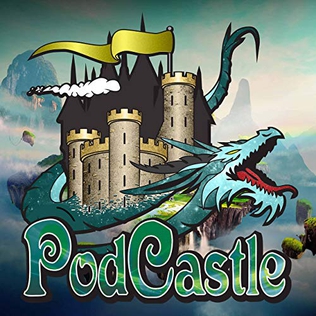Related Research Articles

Cyberpunk is a subgenre of science fiction in a dystopian futuristic setting said to focus on a combination of "low-life and high tech". It features futuristic technological and scientific achievements, such as artificial intelligence and cyberware, juxtaposed with societal collapse, dystopia or decay. Much of cyberpunk is rooted in the New Wave science fiction movement of the 1960s and 1970s, when writers like Philip K. Dick, Michael Moorcock, Roger Zelazny, John Brunner, J. G. Ballard, Philip José Farmer and Harlan Ellison examined the impact of technology, drug culture, and the sexual revolution while avoiding the utopian tendencies of earlier science fiction.

Ursula Kroeber Le Guin was an American author. She is best known for her works of speculative fiction, including science fiction works set in her Hainish universe, and the Earthsea fantasy series. Her work was first published in 1959, and her literary career spanned nearly sixty years, producing more than twenty novels and over a hundred short stories, in addition to poetry, literary criticism, translations, and children's books. Frequently described as an author of science fiction, Le Guin has also been called a "major voice in American Letters". Le Guin said she would prefer to be known as an "American novelist".

Glen David Brin is an American science fiction author. He has won the Hugo, Locus, Campbell and Nebula Awards. His novel The Postman was adapted into a 1997 feature film starring Kevin Costner.

Gene Rodman Wolfe was an American science fiction and fantasy writer. He was noted for his dense, allusive prose as well as the strong influence of his Catholic faith. He was a prolific short story writer and novelist, and won many literary awards. Wolfe has been called "the Melville of science fiction", and was honored as a Grand Master by the Science Fiction and Fantasy Writers of America.

The Astounding Award for Best New Writer is given annually to the best new writer whose first professional work of science fiction or fantasy was published within the two previous calendar years. It is named after Astounding Science Fiction, a foundational science fiction magazine. The award is sponsored by Dell Magazines, which publishes Analog.

Gardner Raymond Dozois was an American science fiction author and editor. He was the founding editor of The Year's Best Science Fiction anthologies (1984–2018) and was editor of Asimov's Science Fiction (1986–2004), garnering multiple Hugo and Locus Awards for those works almost every year. He also won the Nebula Award for Best Short Story twice. He was inducted to the Science Fiction Hall of Fame on June 25, 2011.
The Internet Speculative Fiction Database (ISFDB) is a database of bibliographic information on genres considered speculative fiction, including science fiction and related genres such as fantasy, alternate history, and horror fiction. The ISFDB is a volunteer effort, with the database being open for moderated editing and user contributions, and a wiki that allows the database editors to coordinate with each other. As of April 2022, the site had catalogued 2,002,324 story titles from 232,816 authors.

Julio Florencio Cortázar was an Argentine and naturalised French novelist, short story writer, poet, essayist, and translator. Known as one of the founders of the Latin American Boom, Cortázar influenced an entire generation of Spanish-speaking readers and writers in America and Europe.

Asimov's Science Fiction is an American science fiction magazine edited by Sheila Williams and published by Dell Magazines, which is owned by Penny Press. It was launched as a quarterly by Davis Publications in 1977, after obtaining Isaac Asimov's consent for the use of his name. It was originally titled Isaac Asimov's Science Fiction Magazine, and was quickly successful, reaching a circulation of over 100,000 within a year, and switching to monthly publication within a couple of years. George H. Scithers, the first editor, published many new writers who went on to be successful in the genre. Scithers favored traditional stories without sex or obscenity; along with frequent humorous stories, this gave Asimov's a reputation for printing juvenile fiction, despite its success. Asimov was not part of the editorial team, but wrote editorials for the magazine.

The Magazine of Fantasy & Science Fiction is a U.S. fantasy and science-fiction magazine, first published in 1949 by Mystery House, a subsidiary of Lawrence Spivak's Mercury Press. Editors Anthony Boucher and J. Francis McComas had approached Spivak in the mid-1940s about creating a fantasy companion to Spivak's existing mystery title, Ellery Queen's Mystery Magazine. The first issue was titled The Magazine of Fantasy, but the decision was quickly made to include science fiction as well as fantasy, and the title was changed correspondingly with the second issue. F&SF was quite different in presentation from the existing science-fiction magazines of the day, most of which were in pulp format: it had no interior illustrations, no letter column, and text in a single-column format, which in the opinion of science-fiction historian Mike Ashley "set F&SF apart, giving it the air and authority of a superior magazine".

Omni was a science and science fiction magazine published for domestic American and UK markets. It contained articles on science, parapsychology, and short works of science fiction and fantasy. It was published as a print version between October 1978 and 1995. The first Omni e-magazine was published on CompuServe in 1986 and the magazine switched to a purely online presence in 1996. It ceased publication abruptly in late 1997, following the death of co-founder Kathy Keeton; activity on the magazine's website ended the following April.
Weird fiction is a subgenre of speculative fiction originating in the late 19th and early 20th centuries. Weird fiction either eschews or radically reinterprets traditional antagonists of supernatural horror fiction, such as ghosts, vampires, and werewolves. Writers on the subject of weird fiction, such as China Miéville, sometimes use "the tentacle" to represent this type of writing. The tentacle is a limb-type absent from most of the monsters of European gothic fiction, but often attached to the monstrous creatures created by weird fiction writers, such as William Hope Hodgson, M. R. James, Clark Ashton Smith, and H. P. Lovecraft.

Ace Books is a publisher of science fiction (SF) and fantasy books founded in New York City in 1952 by Aaron A. Wyn. It began as a genre publisher of mysteries and westerns, and soon branched out into other genres, publishing its first science fiction title in 1953. This was successful, and science fiction titles outnumbered both mysteries and westerns within a few years. Other genres also made an appearance, including nonfiction, gothic novels, media tie-in novelizations, and romances. Ace became known for the tête-bêche binding format used for many of its early books, although it did not originate the format. Most of the early titles were published in this "Ace Double" format, and Ace continued to issue books in varied genres, bound tête-bêche, until 1973.

Escape Pod is a science fiction podcast magazine produced by Escape Artists, Inc. It proclaims itself "the world's leading science fiction podcast". The present co-editors are Mur Lafferty and S. B. Divya.
The Parsec Awards were a set of annual awards created to recognize excellence in science fiction podcasts and podcast novels. The awards were created by Mur Lafferty, Tracy Hickman and Michael R. Mennenga and awarded by FarPoint Media. They were first presented in 2006 at DragonCon. In 2009 the awards were described as "one of the most recognizable honors in science and fiction podcasting". The awards were given from 2006 to 2018.

Mur Lafferty is an American podcaster and writer based in Durham, North Carolina. She was the editor and host of Escape Pod from 2010, when she took over from Steve Eley, until 2012, when she was replaced by Norm Sherman. She is also the host and creator of the podcast I Should Be Writing. Until July 2007, she was host and co-editor of Pseudopod. She was the Editor-in-Chief of the Escape Artists short fiction magazine Mothership Zeta until it went on hiatus in 2016.

Brian Andrew Dunning is an American writer and producer who focuses on science and skepticism. He has hosted a weekly podcast, Skeptoid, since 2006, and he is an author of a series of books on the subject of scientific skepticism, some of which are based on the podcast. Skeptoid has been the recipient of several podcast awards such as the Parsec Award. Dunning has also created the Skeptoid.org spin-off video series, inFact, and The Feeding Tube both available on YouTube.

Ursula K. Le Guin (1929–2018) was an American author of speculative fiction, realistic fiction, non-fiction, screenplays, librettos, essays, poetry, speeches, translations, literary critiques, chapbooks, and children's fiction. She was primarily known for her works of speculative fiction. These include works set in the fictional world of Earthsea, stories in the Hainish Cycle, and standalone novels and short stories. Though frequently referred to as an author of science fiction, critics have described her work as being difficult to classify.

PodCastle is a weekly audio fantasy fiction podcast. They release audio performances of fantasy short fiction, including all the subgenres of fantasy, including magical realism, urban fantasy, slipstream, high fantasy, and dark fantasy. As of 2022, Shingai Njeri Kagunda and Eleanor R. Wood share editing duties with support from Assistant Editor Sofía Barker and audio producers Devin Martin and Eric Valdes, and the show is mainly hosted by Matt Dovey, with occasional guest hosts.
Aliza T. Greenblatt is an American mechanical engineer and author of speculative fiction who writes as A. T. Greenblatt. to avoid confusion with poet Aliza Greenblatt.
References
- ↑ "Parsec". Tercera Fundación (in Spanish). Retrieved 21 August 2019.
- ↑ Darrell B. Lockhart (2004). Latin American Science Fiction Writers: An A-to-Z Guide. Greenwood Publishing Group. p. 87. ISBN 978-0-313-30553-5 . Retrieved 26 April 2020.
- ↑ Mike Ashley (29 February 2020). Science-Fiction Rebels: the Story of the Science-Fiction Magazines from 1981 To 1990: The History of the Science-Fiction Magazine. Oxford University Press. p. 18. ISBN 978-1-78962-171-6 . Retrieved 26 April 2020.